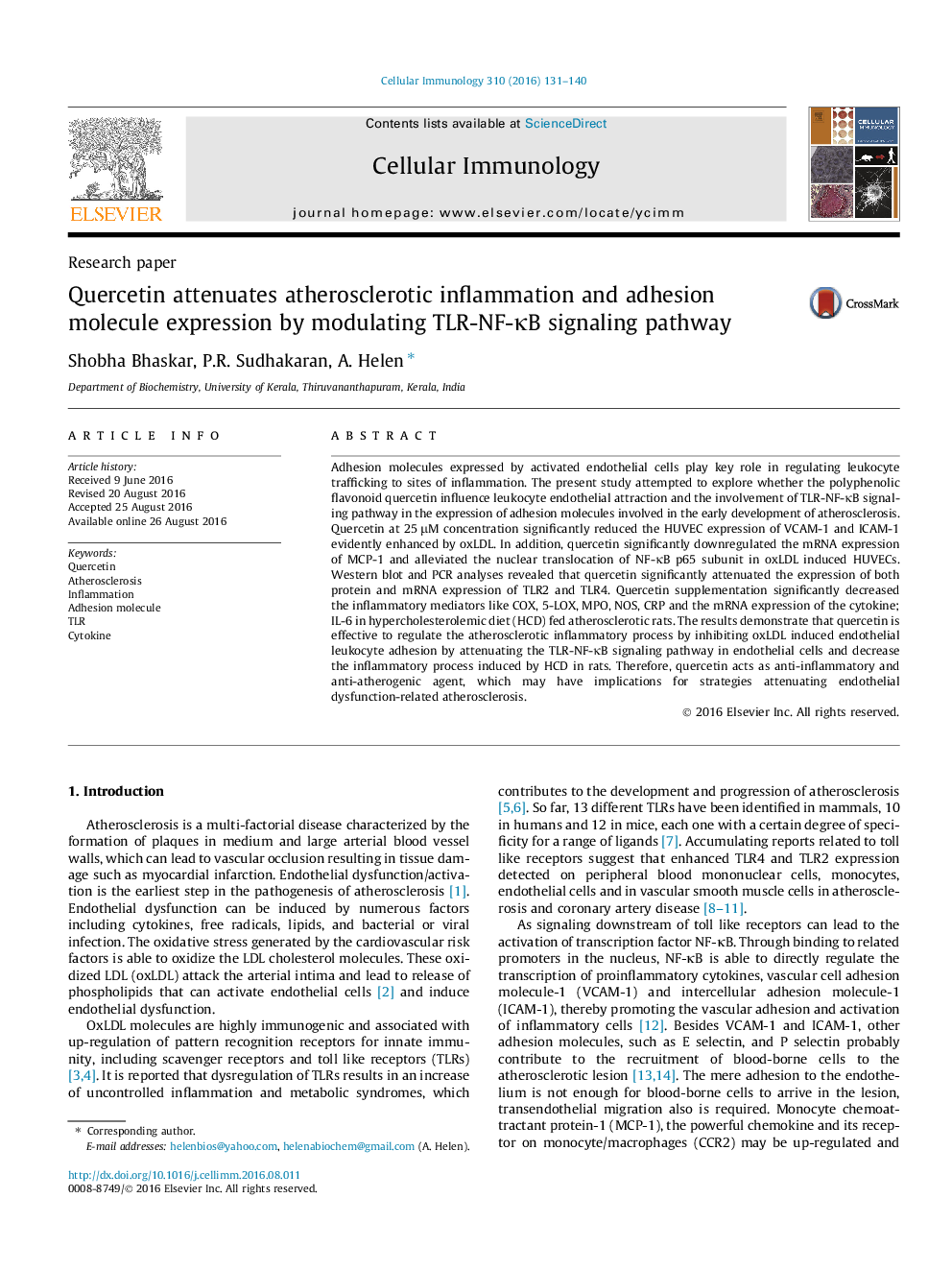| کد مقاله | کد نشریه | سال انتشار | مقاله انگلیسی | نسخه تمام متن |
|---|---|---|---|---|
| 5530726 | 1549389 | 2016 | 10 صفحه PDF | دانلود رایگان |

- Anti-inflammatory effect of quercetin on TLR-NF-κB signaling pathway.
- Inhibitory effect of quercetin on adhesion molecule expression by modulating TLR-NF-κB signaling pathway in oxLDL activated HUVECs.
- Anti-iflammatory effect of quercetin on hypercholesterolemic diet induced atherosclerotic inflammation in rats.
Adhesion molecules expressed by activated endothelial cells play key role in regulating leukocyte trafficking to sites of inflammation. The present study attempted to explore whether the polyphenolic flavonoid quercetin influence leukocyte endothelial attraction and the involvement of TLR-NF-κB signaling pathway in the expression of adhesion molecules involved in the early development of atherosclerosis. Quercetin at 25 μM concentration significantly reduced the HUVEC expression of VCAM-1 and ICAM-1 evidently enhanced by oxLDL. In addition, quercetin significantly downregulated the mRNA expression of MCP-1 and alleviated the nuclear translocation of NF-κB p65 subunit in oxLDL induced HUVECs. Western blot and PCR analyses revealed that quercetin significantly attenuated the expression of both protein and mRNA expression of TLR2 and TLR4. Quercetin supplementation significantly decreased the inflammatory mediators like COX, 5-LOX, MPO, NOS, CRP and the mRNA expression of the cytokine; IL-6 in hypercholesterolemic diet (HCD) fed atherosclerotic rats. The results demonstrate that quercetin is effective to regulate the atherosclerotic inflammatory process by inhibiting oxLDL induced endothelial leukocyte adhesion by attenuating the TLR-NF-κB signaling pathway in endothelial cells and decrease the inflammatory process induced by HCD in rats. Therefore, quercetin acts as anti-inflammatory and anti-atherogenic agent, which may have implications for strategies attenuating endothelial dysfunction-related atherosclerosis.
Journal: Cellular Immunology - Volume 310, December 2016, Pages 131-140